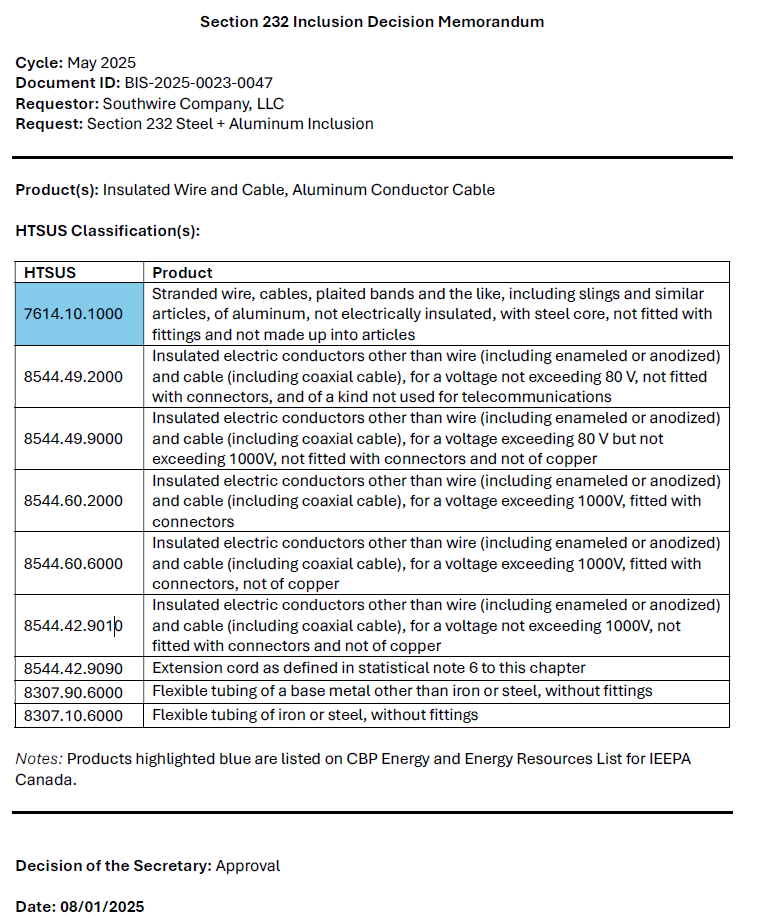Late in the day on Friday, August 15, 2025, the U.S. Department of Commerce (Commerce) announced that it will be adding 407 products to the list of products which are considered to be steel or aluminum derivative products and subjecting them to Section 232 tariffs in the amount of 50% (for all countries besides the United Kingdom) and 25% (for the United Kingdom). The Section 232 tariffs will only apply to the steel or aluminum content of the derivative article. Commerce did not provide for any in-transit exception and determined to make the tariffs effective just three days later on Monday, August 18, 2025.
Commerce’s action covers a wide variety of products, including handsaws, knives, engines, lawn mowers, air conditioners, bulldozers, rail locomotives, and metal furniture. Commerce’s action also targets products which seemingly have no relationship to steel or aluminum, including milk, petroleum oils, helium, oxygen, paint, shaving cream, shampoo, soap, and makeup. Commerce appears to have included these products for purposes of targeting the packaging of these products, which may contain steel or aluminum.
Commerce’s action is a result of the Section 232 inclusion request process that it established earlier this year at the direction of the President. As part of this process, domestic interested parties may request that additional products containing steel and aluminum be included in the list of derivative steel and aluminum articles and subject to Section 232 tariffs. Parties were also given a chance to object to the domestic interested parties’ inclusion request, and many parties did file objections to the inclusion requests that were filed.
For each inclusion request, Commerce issued a “Decision Memorandum” listing the name of the requestor, the products that were requested for inclusion, and Commerce’s decision. Commerce approved nearly all of the products requested for inclusion and appears to have only denied inclusion requests for products which are already or will soon be subject to other tariff actions. Commerce’s decision memoranda do not mention any of the objections received, nor do they provide any analysis for why Commerce approved the inclusion over the objections received. Commerce’s failure to provide any analysis of the objections received or any reasoned decision-making whatsoever makes Commerce’s inclusion request decisions especially vulnerable to a court appeal.




